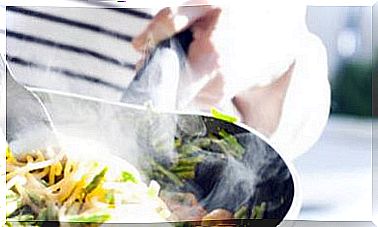5 Reasons To Cook Without Eggs (and How To Replace Them)
If you don’t want or can’t eat eggs, you don’t have to lose out on nutrients or flavor. You have at your disposal a wide variety of alternatives to replace it in all recipes.

When they tell you that you cannot consume eggs or that you must reduce their consumption, or when you consider leaving them for ideological reasons, doubts arise. Will I be lacking nutrients? Do I have to adjust something in my diet? Will I have to give up this or that recipe forever?
Not consuming eggs does not have to be a problem, neither from a nutritional point of view nor from a culinary point of view. We solve your doubts about the reasons that could lead you to stop eating eggs and the alternatives that you have at your fingertips so that you do not miss them.
Problems that eggs can cause
There may be several reasons why you do not want or cannot consume eggs:
1. Egg allergy
Eggs are among the foods that cause the most allergic or intolerance reactions. Up to three out of every hundred children have discomfort after consumption. In adults, allergies are reduced to one in 200.
The allergy causes skin, respiratory and digestive symptoms. It is important to determine with a test if the child is really allergic.
In case the child is allergic, he should avoid the egg completely.
Allergenic substances are proteins found in both the white and the yolk. The problem is the myriad of products that incorporate eggs in their composition.
2. Intolerance reactions
Eggs can also cause intolerance reactions. Symptoms include bloating, gas, stomach pain, nausea, and vomiting.
The reaction is more likely if it is eaten rare, such as in meringues, quiches, mayonnaise, custards or tortillas.
3. Have high cholesterol
The yolk of an egg contains approximately 200 mg of cholesterol, but in general it must be known that it does not contribute to the rise in the blood rate.
A healthy person can eat one egg a day.
4. Salmonellosis
The presence of Salmonella in the eggshell is at the origin of potentially serious infections when care is not taken with hygiene.
5. Vegan ethics
Beyond health, vegans renounce eggs out of respect for animal rights.
How to supplement the nutrients provided by the egg
The egg is a very nutritious food: it provides essential minerals such as iron and selenium, vitamins A, E and group B, as well as beneficial substances such as lecithin. But these nutrients can be obtained from other foods.
B12 vitamin
This nutrient is only found in sufficient form and quantity in products of animal origin. An egg provides all that is needed per day.
According to vegan organizations, the only alternative is supplementation (a weekly dose of 2,000 mcg).
Protein
An egg also covers 10 to 20% of the daily protein needs.
Therefore, if you decide to do without this food, it is necessary to increase the consumption of other proteins such as legumes, nuts and seeds.
Vitamin A
There is no problem in getting it from yellow or orange vegetables, as they are rich in beta-carotene that is transformed into vitamin A.
Selenium
In an omnivorous diet, the egg is a main source of this antioxidant and anticancer mineral.
Among the vegetable alternatives are brewer’s yeast, sprouts, wheat germ , and Brazil nuts.
Hill
This substance found in the yolk promotes good fat metabolism and the health of nerve cells, with effects on memory and attention.
One tablespoon of soy lecithin contains similar amounts. Tofu, cabbages, and lima beans are other good sources.
Alternatives to eggs in the kitchen
Eggs are extremely useful in cooking due to their coagulating and binding properties. There is no plant alternative that reproduces all its characteristics, but with different preparations the desired effects are achieved.
To give consistency
As a basic alternative to substituting an egg, soak one tablespoon of ground flax seeds in three tablespoons of water until the mixture takes on a jelly-like texture.
It provides all the alpha-linolenic acid (omega-3) that is needed per day.
To link the recipes
In many recipes the egg serves to bind the rest of the ingredients. For this function, it can be substituted for crushed fruit (banana, apple or avocado in cakes, muffins …).
Other options are: tomato paste, arrowroot powder, whole wheat flour, or mashed potatoes (2-3 tablespoons of these ingredients equal one egg).
To give volume to the masses
Mix apple cider vinegar or lemon juice with baking soda in equal parts. Carbon dioxide bubbles are produced that lighten and swell the masses.
An example: half a ripe banana acts as an egg in the sponge cake recipe. Add half a teaspoon of baking soda and replace 25% of the liquid with low sodium sparkling water. You will get a very fluffy dough.
To flavor egg
The volcanic black salt, which is actually pink in color, offers a sulfur aroma that is very reminiscent of eggs.
How to substitute it in traditional recipes
You can replicate well-known dishes. The scrambled eggs, for example, are played with silky tofu crumbled, some turmeric and a pinch of black salt.
You can also make agar agar puddings : mix water with agar powder or agar flakes in equivalent volumes to obtain a clear jelly. Add it to a vegetable milk with lemon juice, vanilla and sugar, and you have the flan.
There are those who are capable of reproducing eggs in shape, color and flavor to obtain vegan “eggs”. Thus, there are “yolks” based on yeast, alginate and beta-carotene. Whole eggs are imitated with potato starch, tapioca flour, and methylcellulose.









